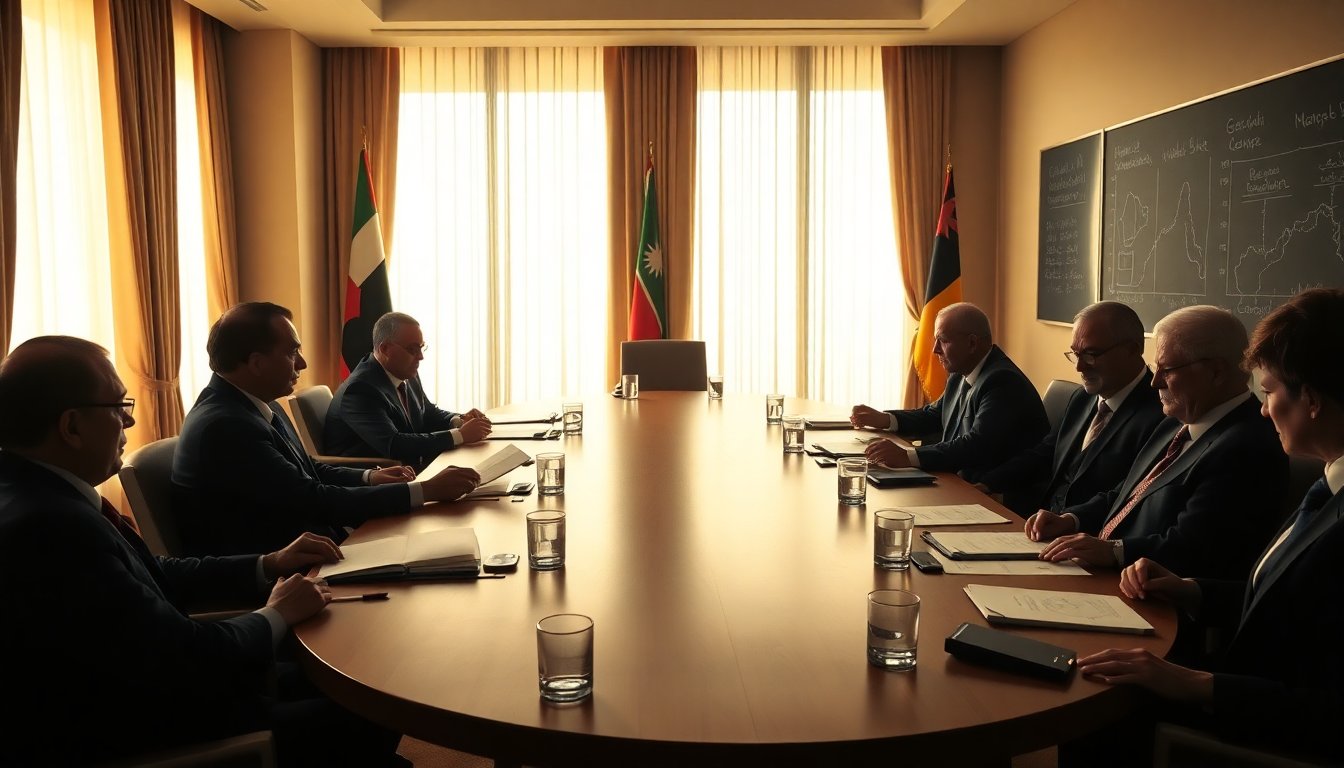Table of Contents
In a significant diplomatic effort, representatives from Hamas, Israel, and the United States convene in Egypt to discuss the possibility of a ceasefire based on a plan proposed by President Donald Trump. This initiative aims to halt ongoing hostilities and address the dire situation in the Gaza Strip.
President Trump has indicated that the negotiations are expected to take a few days, expressing confidence that the first phase of discussions could conclude within the week. He has called on the negotiators to act swiftly, emphasizing the urgency of the situation. Meanwhile, he has warned Hamas of severe consequences should they refuse to yield control of Gaza.
Details of the ceasefire proposal
At the heart of the proposed agreement is a framework that includes the release of 48 hostages held by Hamas, with 20 of these individuals believed to still be alive. In exchange, Israel would agree to free 250 Palestinian prisoners serving life sentences, along with an additional 1,700 detainees arrested since the onset of conflict.
Critical uncertainties
However, as noted by Jerusalem Post columnist Yaakov Katz, the success of these negotiations heavily relies on the intricacies involved. For instance, he pointed out the complications that could arise if Hamas claims they can only locate 40 hostages instead of the agreed 48. This raises questions about Israel’s potential response: would they abandon the negotiation table? What stance would President Trump take in such a scenario?
Moreover, Katz highlights ambiguities surrounding the ceasefire plan, particularly regarding what disarmament means for Hamas and the specifics of any potential Israeli withdrawal from Gaza. The timeline for these actions remains unclear, adding to the uncertainty of the peace efforts.
Hamas’s response and its implications
The Hamas leadership has yet to fully embrace crucial elements of Trump’s ceasefire plan. Notably, their response lacks commitment to disarming or the formation of an oversight committee, which Trump has termed the “Board of Peace.” Instead, Hamas has indicated that discussions related to the future governance of Gaza and the rights of the Palestinian people will be addressed later.
Additionally, Hamas reiterated its intention to play an active role in a national Palestinian framework, a statement that contradicts Trump’s stipulation prohibiting Hamas and other militant groups from participating in the governance of Gaza.
Expert opinions on the ceasefire plan
In an interview with CNN, legal expert Diana Buttu, a Palestinian human rights advocate, expressed skepticism regarding Trump’s proposal, arguing that it does not adequately address the complexities necessary for achieving lasting peace. Conversely, analyst Dan Senor portrayed the plan as beneficial for both Israel and the Palestinian populace, suggesting it could also foster stability in the broader Arab world.
Upcoming negotiations in Sharm el-Sheikh
As these discussions unfold, indirect talks are slated to commence in Sharm el-Sheikh, a historic venue for similar peace negotiations in the past. The delegations will feature key figures from each side, including Hamas’s chief negotiator Khalil Al-Hayya, who has recently resurfaced in public after a significant security incident.
Israel’s team will operate under the guidance of Minister of Strategic Affairs Ron Dermer, with support from military and security experts focused on hostage issues. Representing the U.S. will be envoys such as Jared Kushner and Steve Witkoff, both of whom are pivotal in facilitating these negotiations.
Global context of the conflict
President Trump has indicated that the negotiations are expected to take a few days, expressing confidence that the first phase of discussions could conclude within the week. He has called on the negotiators to act swiftly, emphasizing the urgency of the situation. Meanwhile, he has warned Hamas of severe consequences should they refuse to yield control of Gaza.0
President Trump has indicated that the negotiations are expected to take a few days, expressing confidence that the first phase of discussions could conclude within the week. He has called on the negotiators to act swiftly, emphasizing the urgency of the situation. Meanwhile, he has warned Hamas of severe consequences should they refuse to yield control of Gaza.1


